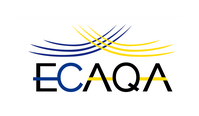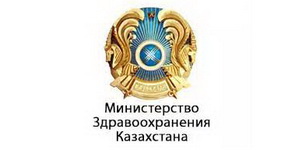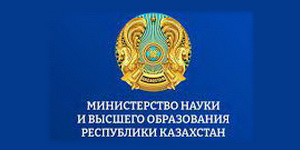Students Involvement
-
Published: 02 May 2017

STUDENT PARTICIPATION IN THE ACCREDITATION PROCESS
1. Introduction and involvement of students in the accreditation process
- In preparation of the higher education institution to the institutional accreditation Rector, Vice-Rectors and representative of the institution on institutional self-evaluation, meet with student government.
- At a meeting with student government should be defined and discussed the role and participation of students in the process of institutional self-evaluation, information gathering, set the basic rules and introduces students with the process of institutional self-evaluation. A group of students should be responsible for conducting an independent student analysis, the scheduling of independent student’s analysis, participation and understand the role of students during external expert commission site-visit at the higher education institution.
- The higher education institution administration should provide support and needed facilities for student analysis. Student analysis is conducted in parallel with institutional self-evaluation by an internal commission for institutional self-evaluation, which includes one or more representatives of the students.
- Responsible group of students begins an independent analysis and carries out self-evaluation of the admission policy, educational programmes, learning environment, educational resources (library, information and communication technologies, etc.), students support services (tutors, advisor and etc), Students Service Centre (hostels, dining halls, health centers, gyms, etc.), finance and social support for students.
- The student review may be combined with the results of questioning of students, for a more complete presentation of student perception of achievements and areas for improvement in higher education institution. Student opinion should be fully included in the final Institutional Self-evaluation Report.
2. Organization and conducting an independent student analysis
- An independent analysis conducted by students, is a critical element of the accreditation process. Student analysis begins at the same time, when institution begins the whole process of institutional self-evaluation and complete approximately at the same time when institutional self-evaluation commission completes this self-evaluation.
- The institution administration provides the relevant material and technical support to students involved in the procedure of student analysis. Students should be provided with: a copy of the results of students questioning, a copy of a report on the institutional self-evaluation and other information that the institutional self-study commission and students have identified as necessary for the conduct of student analysis.
- Analysis of students is one of the main parts of the information obtained from a study of student opinion, which external expert commission considers on site-visit at the higher education institution. Other sources of information are the data and information received from the students interviewed by the members of external expert commission during site-visit.
- The student should be familiar with the structure of the higher education institution, and its functions.
Student analysis should include the following areas:
- the opportunity to meet with the Rector, academic staff, Dean and faculty;
- involvement of students in appropriate or relevant divisions of the higher education institution (curriculum committee, Academic Council);
- students assessment of feedback’s timeliness and effectiveness;
- teaching and learning methods, and whether identified problems in teaching are reviewed by appropriate divisions;
- students counselling and support (teachers, tutors, financial and social support, learning resources - libraries, computers), including their accessibility and relevance;
- students’ health;
- learning environment;
- availability of conditions for education, recreation, safety of students in higher education institution.
The analysis may include other issues which are not listed in the above list, but which are important for the higher education institution or students.
Responsible group of students should identify the areas to be included for self-evaluation. To collect quantitative data for each area should be used different methods and techniques.
Leaders with a responsible group of students discuss the educational program, availability and quality of services provided to students (library, computers, gyms, dining halls, campuses and medical services), accessibility and quality of clinical training in clinical bases.
To conduct the questioning group leaders should inform their fellow students about the importance of participation and the seriousness with which the accrediting agency assesses the results of their questioning. A questionnaire must reflect the specific characteristics of medical institution, for example, the structure of educational programs, library, electronic resources, etc.
Leaders gather the data obtained, analyze and represent report to responsible group of students. Responsible group of students analyzes and summarizes the findings and presents a report on the study of the views of students.
Report of an independent student analysis should include a brief description of each covered area, such as: rules and conditions for admission, the entrance requirements, educational resources (library, computers, tutors, counselors), services (campuses, dining halls, health centers, gyms), employment of graduates, feedback from employers, financial and social support for students (scholarships, pay for educational services, assistance to students orphans), with the discussion of strengths and weaknesses, and should complete with the conclusion by indicating capacity of the institution and areas to improve. The draft report on student analysis should be submitted to institutional self-evaluation commission. Officials of the institution should not affect on students self-study process.
3. Students participation during the external expert commission’s site-visit at the higher education institution
- According to the institution site-visit program members of the external expert commission meet with representatives of students of junior and senior courses separately at different times. If necessary, on meetings may be invited alumni, interns, master programme’s students, residents, doctoral students. Meetings of members of the external expert commission with students of the institution are held in an informal setting. The purpose of these meetings is to identify the agreement or disagreement with the data report of an independent student analysis, questionnaire. Members of the external expert commission determines the reliability of founded differences, as more detailed study of the problems listed in the report of students on independent study and in questionnaire data, identify emerging issues that could not be mentioned in those sources.
- Selection of students on meeting with the external expert commission is conducted by the institutional self-evaluation commission and a group of students responsible for conducting an independent student analysis. At the meetings with the external expert commission should involve well-informed students participated in organizing and conducting an independent student analysis.
- Students at meetings with external expert commission should feel comfortable, and provide unbiased information about the strengths and weaknesses of the institution.
- External expert commission does not make decisions based only on the views of students. However, they consider any potential problems and concerns that arise during the discussion with students, with the search for their confirmation or rejection.
- In addition to meetings with students, several students must accompany an external expert commission during its visit to classrooms, laboratories, library, computer labs, recreation rooms, gyms and other relevant structural units of the medical institution.
- External expert commission analyses the information that was obtained on the basis of reports on institutional self-evaluation in the context of other information that is obtained during the site-visit and their conclusion they reflect only in the final report based on external expert commission’s site-visit at the higher education institution.
4. Feedback from students on accreditation standards
- Students’ contribution in the accreditation process is important for the accrediting agency. Student is useful for the accrediting agency that he/she provides suggestions and feedback. There are several ways to get feedback from students.
- Accrediting agency conducts scheduled and unscheduled surveys of existing accreditation standards, makes changes and additions to the accreditation standards and develops new standards. Planned surveys are carried out within five years. Questionnaires for the various categories of standards are provided to stakeholders, including students, providing feedback on each standard to improve the quality of education.
- Accrediting agency also provides opportunities for general comments on the standards and proposals for new accreditation standards. Proposals for new standards or changes to the existing standards may be made by all stakeholders, as well as from higher education institutions.








